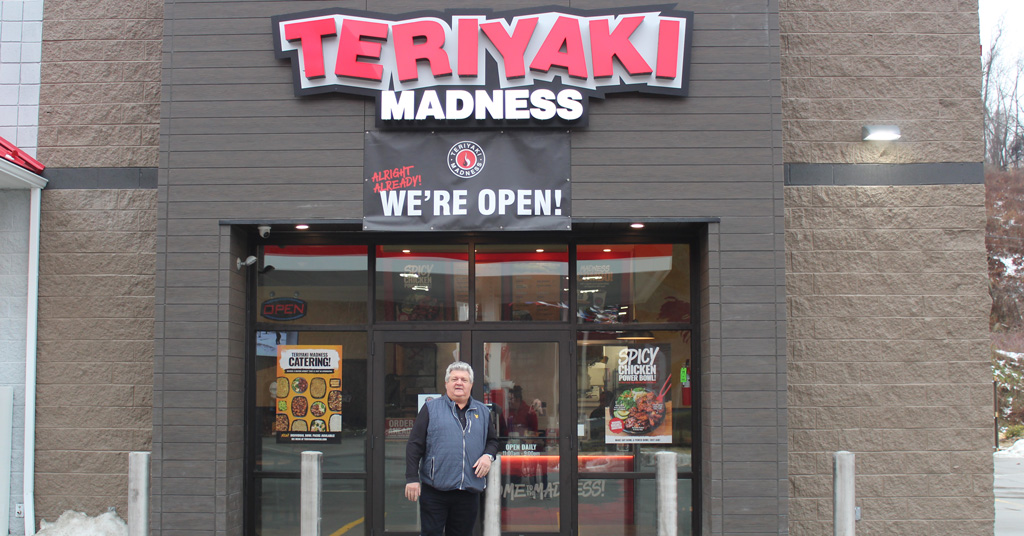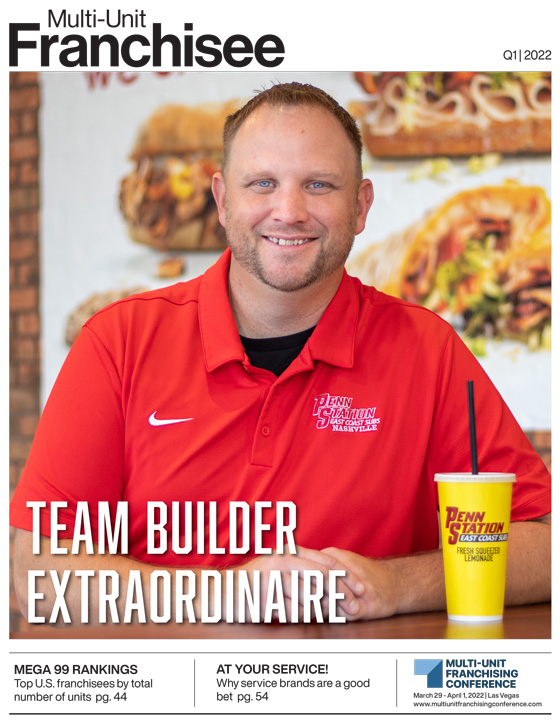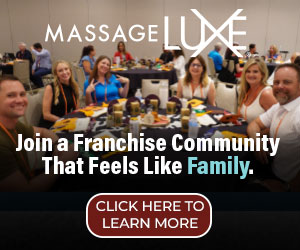Fuel, Convenience, and Food: Appalachia's king of the c-stores branches out

Name: Greg Darby
Title: President
Company: Little General Stores
No. of units: 115 Little General Stores, 25 Subway, 15 Arby’s, 15 Godfather’s Pizza, 7 Dunkin’, 7 Burger King, 5 Taco Bell, 1 Teriyaki Madness
Age: 64
Family: Wife Darlene, sons Dustin and Cody
Years in franchising: Since the mid-1980s
Years in current position: Since 1999
If you’re traveling across West Virginia, chances are you’ll run across one of Greg Darby’s stores. That’s because the 64-year-old entrepreneur operates 115 Little General convenience stores offering customers everything from Dunkin’, Taco Bell, and Subway eats to Marathon, Exxon, and bp gasoline.
“We stick to what we know,” says Darby. “Fuel, convenience, and food. That is what we are good at.”
He’s been good at the franchising business since the mid-1980s when he began working for the Little General Stores organization. He purchased the company outright in 1999 and has quadrupled its size to $400 million in annual revenue. These days he and partner Cory Beasley steer the ship together, offering fuel for travelers and serving food from Dunkin’, Burger King, Taco Bell, Arby’s, Subway, and Godfather’s Pizza.
Most recently, Darby signed with Teriyaki Madness for five locations and opened his first in December. He’s excited about this new development deal. “We just opened another Little General store in Fairmont, West Virginia with an Arby’s on one side and a Teriyaki Madness on the other. We’re going to be spending a lot of time growing Teriyaki Madness. It’s a great brand and opportunity for us.”
With 25 years in franchising, Darby has learned the importance of community involvement. His locations support everything from local sports teams and West Virginia college athletics to the Make-a-Wish Foundation and Children’s Miracle Network.
PERSONAL
First job: Construction, first job out of college. One of my accounts was four Little General Stores.
Key accomplishments: Bought the company and quadrupled the size. Lots of philanthropy work for kids.
Biggest current challenge: Hiring good staff.
Next big goal: Continue to develop people and watch them grow.
First turning point in your career: Getting the job at Little General, then purchasing the company after working there for 19 years.
Best business decision: Purchasing the company!
Hardest lesson learned: Trusting people. But I have a lot of life lessons and I try to pass them on to our younger employees.
Work week: Business is 365, 24/7 so we are there when needed.
Exercise/workout: Yes, cardio and bands.
Best advice you ever got: If you don’t understand something, ask questions.
What’s your passion in business? Helping and developing people.
How do you balance life and work? Hunting, fishing, and sporting events. I make time to do these things with family. I just went on a South Dakota deer hunting trip with my grandson. I like to travel for sporting events. I try to make the time.
Guilty pleasure: No. I deserve what I get, so I try to remain humble and not feel guilty.
What do most people not know about you? I have a big heart.
What did you want to be when you grew up? An athletic trainer for an NFL or college team.
Last vacation: South Dakota deer hunting trip with my grandson.
Person I’d most like to have lunch with: No idea.
MANAGEMENT
Management method or style: I like to empower my people; they set their objectives and I don’t get in their way. No micromanagement. They know their objectives and they reach them. And I compensate them for this.
Greatest challenge: People, finding and keeping quality people. This is a high-turnover business and people are the biggest challenge.
How do others describe you? Fair, demanding, high expectations.
One thing I’m looking to do better: Not any one thing, just always looking to improve the whole picture.
How I give my team room to innovate and experiment: I empower them and challenge them to innovate and experiment. They bring me ideas and I encourage them to do so. I’m always open to new ideas! Open communication.
How close are you to operations? Very close, but not day-to-day on the street. I always keep my eye on it to understand and ensure the numbers and objectives are hitting. I’m not on the street making tacos, but I am looking at us and competitors and talking and listening to our people in the field. “It all starts on the street.”
What are the two most important things you rely on from your franchisor? Quality product and procedures, and quality marketing. I need both to be successful.
What I need from vendors: Supply, innovation, feedback, and quality products.
Have you changed your marketing strategy in response to the economy? How? Yes. We have changed to be more digital, app-based, curbside, Grubhub, and delivery—a lot of things we didn’t do pre-Covid.
How is social media affecting your business? Positively. We use it to support our efforts on promotionals and for congratulations. We’re using it much more post-Covid.
How do you hire and fire? The HR department handles this. We use all sorts of avenues, but word of mouth is top. We have an incentive program for bringing on employees who stay.
How do you train and retain? With a whole training program from an outside firm and our franchisor training programs as well.
How do you deal with problem employees? We have a system and process that flows through HR.
Fastest way into my doghouse: Not doing what you are supposed to do. No follow-through or follow-up.
COVID-19
How has Covid-19 affected your business? Restaurants with no drive-thru were devastated by it; drive-thrus were a lifeline. Our delivery business before Covid was nonexistent, but it grew tremendously as a result. Interstate convenience stores took a big hit with lack of travel. Local C-stores increased as they became more of a grocery store as people were avoiding big box stores.
How have you responded? We have changed to be more digital, app-based, curbside, Grubhub, and delivery—things we didn’t do pre-Covid. We installed shields and cleaning programs, which helped make our employees feel better about working. We did everything we could to make our employees feel safe and were safe.
What changes do you think will be permanent? Digital, app-based, curbside, Grubhub, and delivery will become the norm. I don’t see it slowing down.
BOTTOM LINE
Annual revenue: $400 million.
2022 goals: I’m looking to open another few Dunkin’s and several Teriyaki Madness sites with another C-store with a restaurant attached. Our new C-store in Fairmont, West Virginia has an Arby’s on one end and a Teriyaki Madness on the other.
Growth meter: How do you measure your growth? Revenue changes, so in the restaurant business it’s by sales and net profit.
Vision meter: Where do you want to be in 5 years? 10 years? In 5 years, I just want to continue to grow and make sure we are having a good, steady annual growth, and that we grow smart. Teriyaki Madness is the one we plan to spend more time growing. This is why we picked it—it’s a great opportunity to grow in bigger markets. In 10 years, the same thing: grow smart. I never plan to retire. I have my freedom. I’m not tied to a desk job.
Do you have brands in different segments? Why/why not? No, we stick to fuel, convenience, and food.
How is the economy in your region affecting you, your employees, your customers? Positively. It’s as good as it’s been for a while. It’s coming back.
Are you experiencing economic growth in your markets? Yes.
How do changes in the economy affect the way you do business? Our business is quite recession-proof. We do better in a tougher economy. When times are tough, people switch to us. It does affect us and hurts, but not quite as badly as for others.
How do you forecast for your business? Year-over-year comparisons.
What are the best sources for capital expansion? Internal profit, local banks.
Experience with private equity, local banks, national banks, other institutions? Why/why not? National banks but no private equity. I haven’t needed PE.
What are you doing to take care of your employees? Nothing specific, just always have their interest at heart. They are the keys to our success, so we are always looking at things we can do better for them.
How are you handling rising employee costs (payroll, minimum wage, healthcare, etc.)? We are paying it, we understand it, we figure out how to do it and get it done.
What laws and regulations are affecting your business and how are you dealing with them? They pop up all the time and we deal with them as we go. We put together a plan as a team and implement the plan to whatever is required for the situation.
How do you reward/recognize top-performing employees? Bonus programs.
What kind of exit strategy do you have in place? When our franchise agreement is up and things are good with the brand, we just re-sign and move on. This is determined by the market, and as long as it is performing we move forward. If it’s the right decision, we upgrade and continue to operate the business.
Share this Feature
Recommended Reading:
FRANCHISE TOPICS
- Multi-Unit Franchising
- Get Started in Franchising
- Franchise Growth
- Franchise Operations
- Open New Units
- Franchise Leadership
- Franchise Marketing
- Technology
- Franchise Law
- Franchise Awards
- Franchise Rankings
- Franchise Trends
- Franchise Development
- Featured Franchise Stories
FEATURED IN

Multi-Unit Franchisee Magazine: Issue 1, 2022

$300,000
$300,000





 The multi-unit franchise opportunities listed above are not related to or endorsed by Multi-Unit Franchisee or Franchise Update Media Group. We are not engaged in, supporting, or endorsing any specific franchise, business opportunity, company or individual. No statement in this site is to be construed as a recommendation. We encourage prospective franchise buyers to perform extensive due diligence when considering a franchise opportunity.
The multi-unit franchise opportunities listed above are not related to or endorsed by Multi-Unit Franchisee or Franchise Update Media Group. We are not engaged in, supporting, or endorsing any specific franchise, business opportunity, company or individual. No statement in this site is to be construed as a recommendation. We encourage prospective franchise buyers to perform extensive due diligence when considering a franchise opportunity.